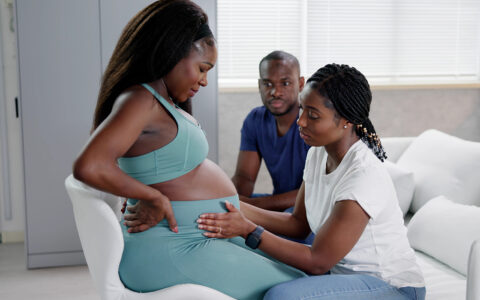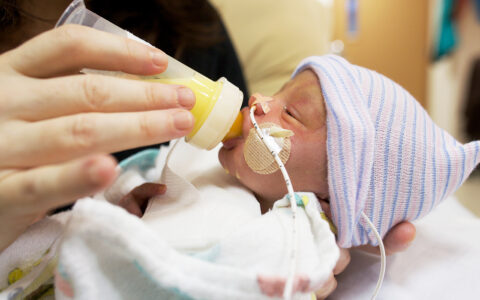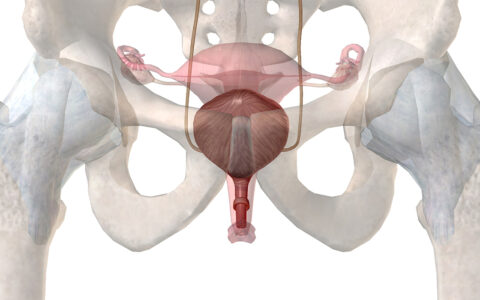In late September, the CDC issued an urgent health advisory about the greatly heightened risks posed to mother and child if a pregnant person skips getting a COVID-19 vaccine. “This CDC warning comes on the heels of all the major obstetrics associations over the summer strongly recommending vaccination for pregnant women,” said Jennifer Thompson, M.D., a specialist in high-risk pregnancy and an associate professor of obstetrics and gynecology at Vanderbilt University Medical Center.
This rising chorus of emphatic calls for pregnant women to get vaccinated rests not only on the serious risks associated with COVID-19 during pregnancy but also growing evidence demonstrating the vaccine’s safety, Thompson stated.
As of mid-October 2021, the CDC has reported over 128,000 cases of COVID-19 among pregnant people, with over 22,000 hospitalizations and 180 deaths.
Vaccine Hesitancy Among Pregnant People
Expectant patients, who are at higher risk of severe illness from COVID-19, are less likely than members of the general population to accept vaccination, Thompson explained, with the same kinds of disparities affecting the general population affecting the pregnant population. “Black and Hispanic pregnant women are overrepresented among the expectant mothers who contract COVID-19 and also among those who go on to have severe illness,” she said.
“When I do have someone who shifts and decides to go ahead and get the vaccination, it feels like a real victory protecting her and her baby.”
Only 31 percent of pregnant people in the U.S. have been fully vaccinated against COVID-19 as of September 18, 2021. In comparison, at the time of writing, 67 percent of the general population have received one dose while 57 percent have received both.
Discussing her pregnant patients, Thompson said, “Despite all evidence, those who are interested are interested; those who aren’t interested in the vaccine don’t get it; and then there are some who are still on the fence.”
Delta Variant Makes Matters Worse
Pregnant patients are suffering a sharply increased burden of disease being caused by the Delta variant, and the problem is worst among underserved patients, Thompson indicated.
“Despite all evidence, those who are interested are interested; those who aren’t interested in the vaccine don’t get it; and then there are some who are still on the fence.”
“In August, we had 39 pregnant women admitted to the hospital for COVID-19 and 10 wound up in the ICU,” she said. “With the previous surge in January, we had only one or two pregnant patients admitted to the ICU and about 10 admitted to the hospital.”
Associations and the CDC Intensify Vaccine Recommendations
In late July 2021, both the American College of Obstetricians and Gynecologists (ACOG) and the Society for Maternal-Fetal Medicine (SMFM), the leading obstetrics associations, jointly issued a strong recommendation that pregnant people get vaccinated against COVID-19. This recommendation represented a change from the groups’ previous, less emphatic position.
“In August, we had 39 pregnant women admitted to the hospital for COVID-19 and 10 wound up in the ICU.”
“The CDC followed the ACOG with its own strong recommendation for vaccination on August 11th,” Thompson said. Several other organizations issued similar strong recommendations around that time, she stated.
“It was the growing evidence from both U.S. and Israeli studies that supported the safety of the vaccines and also showed all the risks of COVID-19 in pregnancy that led to the changes from ‘strongly encouraged’ to ‘strongly recommended,’” Thompson said.
Difficult Conversations Can Pay Off
Some initially reluctant pregnant patients are accepting the vaccines when they learn of the growing evidence about conferred protection to newborns, Thompson said. “Studies have shown that if a woman receives both doses of an mRNA vaccine prior to delivery, antibodies to SARS-CoV-2 are detected in cord blood and breast milk,” she said.
The new recommendations from the CDC, ACOG, and SMFM urge providers to “enthusiastically recommend” vaccination to their patients as being safe before, during, or after pregnancy. Thompson does so, but her unvaccinated patients explain their reluctance with reasons such as: “It’s a personal choice;” “I don’t feel comfortable taking anything during my pregnancy;” and “We don’t have enough long-term data.”
Thompson stresses that it’s important to delve more deeply into what causes a patient to be hesitant about getting the vaccine and work to dispel the incorrect information that is influencing them. “When I do have someone who shifts and decides to go ahead and get the vaccination,” Thompson said, “it feels like a real victory protecting her and her baby.”





